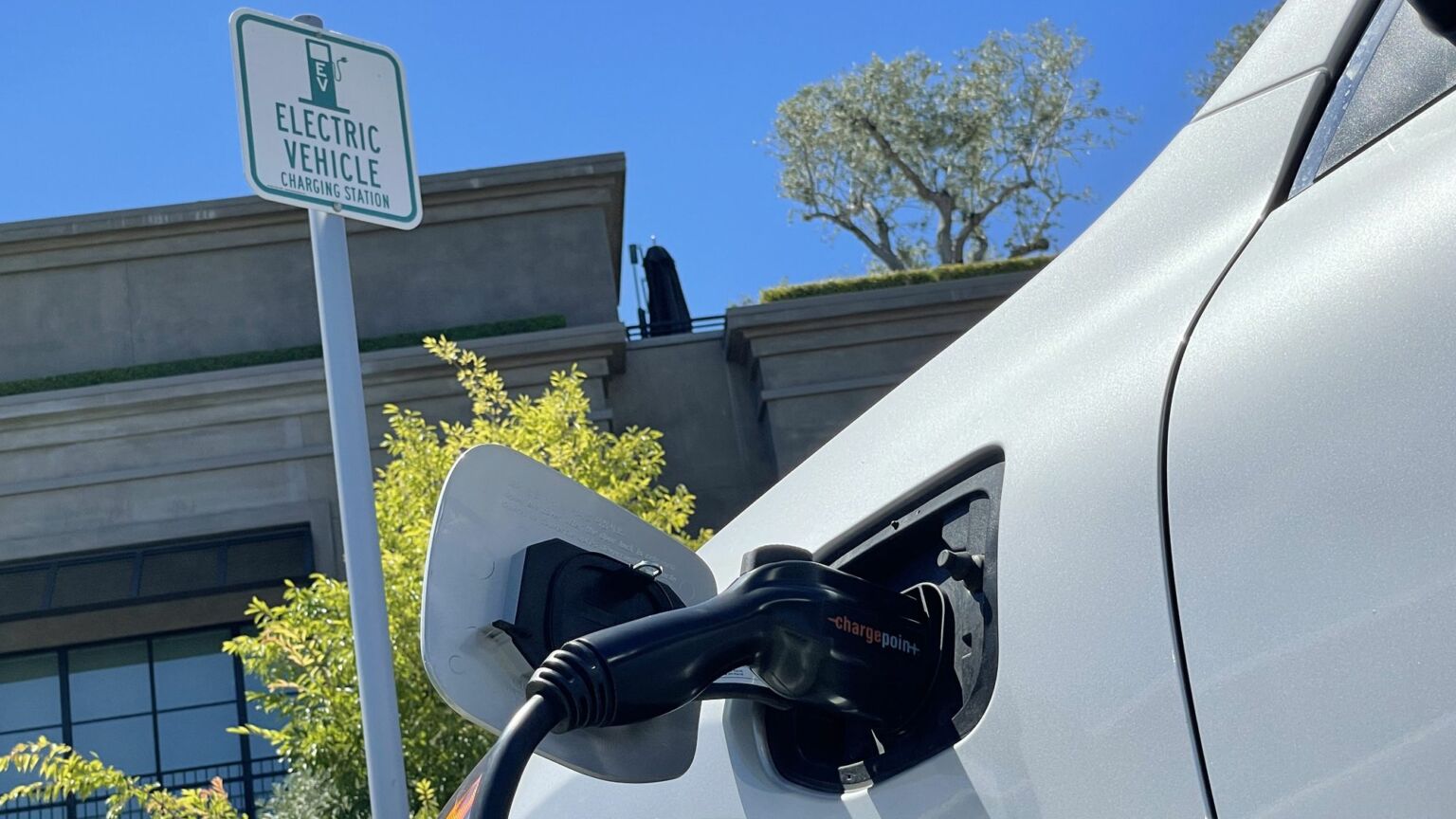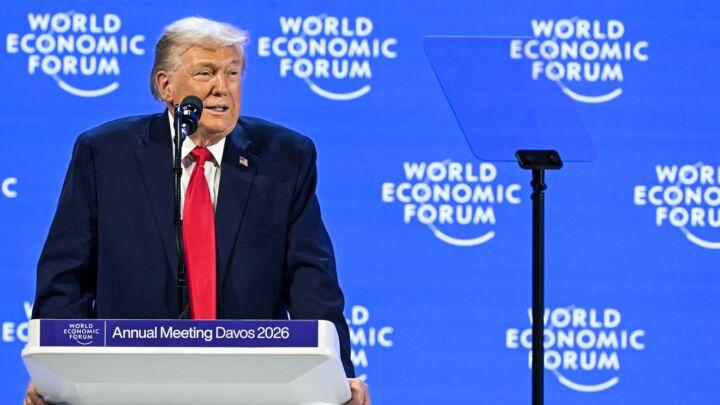This rush to electric cars is a colossal mistake
Only China and the rich will benefit from this hasty transition to an all-electric future.

Want unlimited, ad-free access? Become a spiked supporter.
We may soon regret the radical and absolutist embrace of electric vehicles (EVs). Governments across the world are planning to ban sales of new petrol and diesel cars, and to take older, gas-guzzling vehicles off the road. The Biden administration is proposing strict new pollution limits, as well as vast state subsidies, to accelerate the US’s transition to EVs.
Replacing the massive $3 trillion global car industry is an extremely high-risk economic gamble, particularly for the West. It could also threaten the mobility of all but the richest among us. And all this is being risked for environmental benefits that may prove far less robust than is often claimed. This is not to say that EVs won’t help us to reduce CO2 emissions or to clean the air. The problem is that, at least in the immediate future, they should not be the only option available to consumers.
Toyota, for instance, has argued that there are other, more affordable and quicker ways to reduce emissions than transitioning exclusively to EVs. While Toyota is investing in electric batteries, it also hopes to continue offering hybrid and hydrogen-powered cars in the coming decades. For stating this openly, it has come under fire from green lobbyists and politicians. New York City’s comptroller, Brad Lander, has even decided to restrict the city’s pension fund’s investments in the Japanese car company, due to its unwillingness to faithfully follow the green party line.
The zealots and economic interests pushing an all-electric future generally ignore the challenges inherent in their plans. For one thing, despite promises of lower costs for EVs, the now enormous demand for key components, like lithium, copper and aluminium, means that prices are unlikely to fall any time soon. Battery prices alone will keep the price of EVs high, as the cost of components has risen threefold since 2021.
To be sure, EV mandates have made Tesla-owner Elon Musk a very rich man. But the transition to electric cars will be no boon to the middle and working classes. The average price for a brand-new EV is over $60,000 – about $12,000 more than the average four-door sedan. Even with tax credits, it is hard to see how consumers come out ahead, at least for now. Certainly, working- and middle-class Americans won’t be snatching up the newly planned $300,000 Cadillac EV. Even the popular Model Y Tesla SUV is out of reach for many, as its price has fluctuated between $54,000 and $70,000 over the past year. Perhaps more importantly, the electric version of the Ford F-150 pickup truck costs an additional $26,000 compared with the popular gasoline-powered variety.
In simple terms, the push for EVs represents an assault on the working class. Two-thirds of all EV owners have incomes in excess of $100,000. According to United Latinos Vote, a California-based advocacy group, green attempts to ‘phase out’ affordable cars in favour of ‘expensive EVs’ might make it possible for ‘our rich neighbours in the next town to charge their Teslas’, but they would ‘make it unaffordable to use our [cars]’.
EV mandates are also likely to force up the price of now restricted traditional cars. In the meantime, greens will demand higher fuel prices to reduce drivers’ consumption of the demon petrol. Ultimately, as even the Washington Post recently admitted, electric vehicles are hastening a return to conditions not seen since the early 20th century, when the automobile was a luxury item. ‘New cars, once part of the American Dream, [are] now out of reach for many’, it notes. Not everyone will object to this, of course. Making cars more expensive will also advance the long-standing green goal of radically reducing car use.
More important still, the rapid shift to EVs may well accelerate the deindustrialisation of America and other Western countries. Although communities may welcome the arrival of new electric-assembly facilities, and underperforming firms like General Motors can hope to use federal EV mandates to boost their market share, many traditional component suppliers are likely to get forced out of business. Overall, electric-car production uses 30 per cent less domestic labour in the US compared with traditional car-making. Ford recently announced massive layoffs, despite landing a $9 billion loan from the Biden administration to bolster its EV production. The firm is currently losing $60,000 per EV, which is not exactly sustainable without massive state subsidies. Meanwhile, Germany could lose upwards of 400,000 auto jobs by 2030 thanks to the green transition.
And then there’s the looming question of the electrical grid. In the UK, EVs are projected to double the demand for electricity by 2040. This capacity does not yet exist and nor is it planned for. So the UK government is already looking to ban people from charging their cars at home during peak hours. In California, the epicentre of green zealotry, policies banning the sale of non-electric vehicles mean the state will face ‘acute electricity shortages’ over the coming decade, according to one recent analysis. By 2050, state consultants estimate total electricity demand to skyrocket, rising between 60 and 90 per cent according to some estimates. You won’t have to wait long for the blackouts. Last September, EV-loving California was forced to beg residents to stop charging their electric cars for fear of breaking the power grid amid a massive heatwave.
In fact, the grid is under strain across the US. The North American Electric Reliability Corporation (NERC) forecasts that two-thirds of the US, including almost everyone living west of the Mississippi River, could experience ‘heightened reliability risks’ this summer due to increased supply side shortages, partly caused by government attempts to throttle fossil-fuel production.
So, who wins here? Certainly not middle- or working-class families for whom climate change barely registers as a primary concern. Elon Musk, the last great American industrialist, is certainly a major beneficiary, as are his investors and those Wall Street insiders eager to cash in on the government-sponsored EV bonanza.
But the biggest winner is China. Western leaders endlessly virtue-signal about going green, but the Middle Kingdom is playing a brilliant double game by embracing EVs. China’s production of ‘green’ cars is backed up by its growing use of cheap and reliable fossil fuels. Meanwhile, the West struggles with the high costs and unreliability associated with renewable energy, which has made our manufacturing processes more expensive.
Today, China produces twice as many EVs as the US and the EU combined. Its leading EV maker, BYD, is now the world’s largest. Its electric-car exports are expected to almost double this year, helping it to overtake Japan as the biggest car exporter worldwide, according to the South China Morning Post. China also seeks to leverage its total domination of the solar-panel industry, and its battery capacity is now roughly four times that of the US. China also exercises effective control over the world’s supply of rare-earth minerals, which are essential for making batteries, as well as the technology for processing them.
Yet, tragically, all of this pain and dislocation could be for little real gain. The environmental benefits that are supposedly driving EV policy are not exactly stellar. Volvo estimates that its EVs require 70 per cent more emissions to produce than its conventional models, due largely to the difficulty of making batteries. Economist Bjorn Lomborg calculates that a wholesale shift to EVs will lead to a reduction of global temperatures of no more than 0.0002 degrees Fahrenheit by 2100. In addition, the EV transition will require, according to the World Bank, something like three billion tonnes of minerals and metals – like nickel, lithium, cobalt and graphite. These will mainly be mined in countries like the Democratic Republic of Congo, where working conditions are brutal.
Fortunately, despite the incessant EV hype, we are starting to see some signs of pushback. Several European countries, including Germany, Italy and Poland, are pressuring the EU to revise its EV mandate, in large part to save what is left of the continent’s industrial base. There’s even some dissent from unions in the US (at least from those who still concern themselves more with preserving jobs than with gaining political traction with the ultra-green Biden administration).
Over time, the dangers of the overly rapid shift to EVs will become far clearer. A sensible plan to reduce emissions would allow for a variety of technologies to emerge, rather than placing all our bets on one flawed approach. The race for EVs may be good news for China. It will also enrich a handful of financial and tech oligarchs. But it will be a loss to pretty much everyone else. It’s time we cancelled the mad race to an all-electric future.
Joel Kotkin is a spiked columnist, the presidential fellow in urban futures at Chapman University and executive director of the Urban Reform Institute. His latest book, The Coming of Neo-Feudalism, is out now. Follow him on Twitter: @joelkotkin
Picture by: Getty.
£1 a month for 3 months
You’ve hit your monthly free article limit.
Support spiked and get unlimited access.
Support spiked – £1 a month for 3 months
spiked is funded by readers like you. Only 0.1% of regular readers currently support us. If just 1% did, we could grow our team and step up the fight for free speech and democracy.
Become a spiked supporter and enjoy unlimited, ad-free access, bonus content and exclusive events – while helping to keep independent journalism alive.
———————————————————————————————————————————–
Exclusive January offer: join today for £1 a month for 3 months. Then £5 a month, cancel anytime.
———————————————————————————————————————————–
Monthly support makes the biggest difference. Thank you.











Comments
Want to join the conversation?
Only spiked supporters and patrons, who donate regularly to us, can comment on our articles.